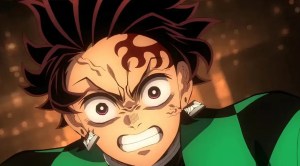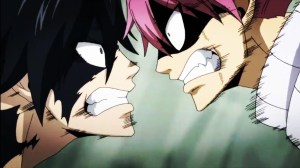Just months after they canned The Tick, Amazon stepped back into the costumed superhero marketplace with The Boys, a series based on the pitch-black comedy by Garth Ennis and Darick Robertson. The series centers on Hughie Campbell (Jack Quaid), whose girlfriend is killed when a superhero named A-Train (Jessie Usher) runs through her at super-speed. After being pressured by lawyers for the superhero to settle out of court, Hughie is approached by Billy Butcher (Karl Urban), an operative for a shadowy organization that aims to “spank” superheroes when they get out of line. And, if you have read the comics, you know that things get violent pretty quickly.
Videos by ComicBook.com
While the series lacks the visual flair of Darick Robertson’s artwork, it is in many other respects just as good as the source material. With stellar performances from Urban, Quaid, and Erin Moriarty (who plays Starlight, an idealistic young superhero who finds herself instantly in conflict with her self-centered and sadistic teammates), the show’s first season is already as good as just about anything that Happy! or Preacher (series based on work by Robertson and Ennis, respectively) brought to the table during their runs. The idea of deconstructing superheroes is no longer as edgy as it might have been when Zack Snyder brought Watchmen to the world ten years ago, but at the same time, it likely resonates with a larger audience more now that we have had a decade of Marvel movies, and basically everyone in the audience should understand the dynamics at play on a superhero team and the archetypes represented by The Seven.
With a teleplay by Eric Kripke (Supernatural), a cast of familiar faces, and some serious production value, The Boys was always going to have high expectations placed on it. So far, the series seems to be living up to its potential. Some of the more visually disturbing elements of the comics are removed from the show so as to speak to an audience larger than the relatively modest audience of a 2000s creator-owned superhero comic, but it retains enough of the comic’s DNA and personality to be unmistakably The Boys. The pilot episode, which introduces only a small number of the main characters and only barely teases one of the most significant bits of backstory, is a master class in characterization Even people unfamiliar with the comics will get a strong sense of who several of these characters are right away.
If there is an area where the TV series exceeds the comic, it is likely in its handling of Starlight. Moriarty brings an idealistic energy to the role that seems informed by performances like Gal Gadot’s Wonder Woman and Chris Evans’s Captain America. She is, so far, a character whose biggest flaw is that she believes so earnestly in what she is trying to do that she is not as assertive as she otherwise might be about things that are clearly amiss. In that respect, though, she is something of a mirror for Hughie, which is a perfect function for her since she more or less joins The Seven on the same day Hughie joins The Boys. Between the two of them, they actually give the series a fairly optimistic view of human nature and hope for the future — something that the comics often lacked, and something that the advertising for the show would not necessarily have clued the audience into.
As alluded to above, the biggest weakness that The Boys has is its aesthetic — specifically as it comes to The Seven and other top-line superheroes. It feels like it could be set, actually, in the same universe as Snyder’s Watchmen, with costumes that are a commentary on the ultra-realistic and utilitarian warsuits superheroes wear in live-action movies because tights look too silly. As with The Tick, though, the commentary doesn’t entirely come through, and you are left instead with superheroes who are meant to represent archetypes best known for being brightly colored and larger-than-life, but who are instead washed out and grounded. You can see how the set design people made it work for them — it allowed the world of the show to depict the superheroes’ media personalities as the bright, colorful versions, while the real-world versions are not — but it is not entirely clear that this was done on purpose from the start. It may equally be that production designers simply took an opportunity that the world established by the looks of the superheroes afforded them.
The Boys will make some fans uneasy — as its comic book counterpart did — and that’s okay. This is the kind of show Titans is, but without the restrictions on having to play nice with the characters so as not to break the toys before the next cartoon comes along. It’s violent, sometimes gross, and often offensive — but The Boys never feels like it is shocking just to shock. Instead, everything seems to have a purpose, and speak to a larger theme in the story or observation about the nature of power and human nature. All of that said, there’s a big, fat warning out there for anybody who doesn’t want to see sex, violence, and vulgarity in their superhero stuff. This is like if Kick-Ass had a budget and Justice League-level power sets.
Rating: 5/5








